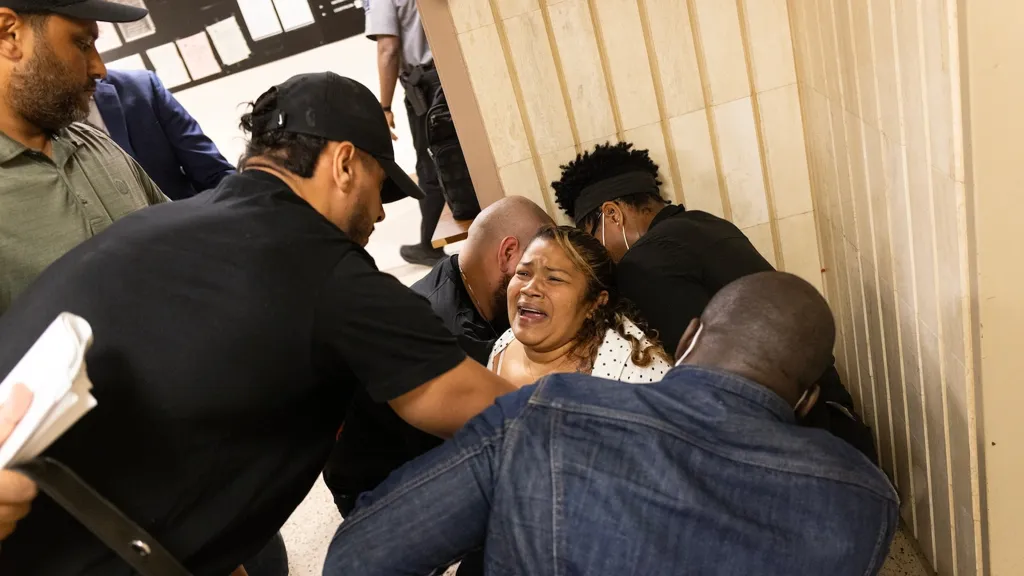DHS has been deporting some migrants who appear for their immigration hearings.
A federal judge has temporarily restricted the Trump administration's ability to quickly deport migrants who have legally entered the U.S. through humanitarian programs.
The lawsuit, filed by the Coalition for Humane Immigrant Rights and other civic groups, challenges the government's justification for placing certain migrants into sped-up deportation proceedings.
The judge's order, issued Friday, curtails the administration's reliance on the expedited removal process that the administration has recently utilized in courthouses across the country, in which lawyers with the Department of Homeland Security will move to dismiss cases of migrants in immigration proceedings, only to have ICE agents waiting outside the doors to detain them.
Some of those migrants -- many who have been temporarily allowed into the country for humanitarian reasons -- have found themselves back in their home countries within days, lawyers have told ABC News.
Friday's court order does not directly challenge those dismissals, but it limits who may be susceptible to removal proceedings.
"In a world of bad options, they played by the rules," U.S. District Judge Jia Cobb wrote in the ruling. "Now, the Government has not only closed off those pathways for new arrivals but changed the game for parolees already here, restricting their ability to seek immigration relief and subjecting them to summary removal despite statutory law prohibiting the Executive Branch from doing so."
Since President Donald Trump took office, agencies in charge of implementing the president's immigration agenda have expanded the use of expedited removals. Under President Joe Biden, the process typically applied to migrants who had entered the U.S. within 14 days and within 100 miles of the border.
Under Trump, the statute's interpretation has been expanded to apply to migrants anywhere in the interior of the country who have arrived within the last two years.
"This case's underlying question, then, asks whether parolees who escaped oppression will have the chance to plead their case within a system of rules. Or, alternatively, will they be summarily removed from a country that -- as they are swept up at checkpoints and outside courtrooms, often by plainclothes officers -- may look to them more and more like the countries from which they tried to escape," Judge Cobb wrote.
Barring an appeal from the Trump administration, Judge Cobb's order will remain in place until the lawsuit concludes.
